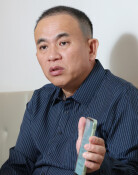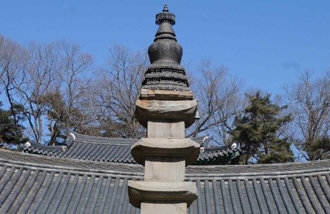Leniency for Base Rioters Criticized
The Supreme Court made no public response to the criticism of Seok Dong-hyun, former Supreme Public Prosecutors Office information officer and current head of the Cheonan Prosecutors Office, on the dismissal of the arrest warrant of demonstrators opposing the American military base in Daechu-ri, Paeseong-eup, Pyeongtaek.
Supreme Court information officer Byeon Hyeon-cheol said, There can be many different views on the case. Overruling or issuing a warrant is the judgment of the corresponding court; it is not appropriate to raise questions on this.
However, some judges opposed this, saying, Prosecutors interpreting and publicly criticizing what the court decided according to the law and their conscience is not understandable.
A chief judge in the Seoul District Court asked in return, The Daechu-ri case is not an easy one for the investigating organization. However, the court cannot decide from the same point of view as the prosecutors. He added, We must not cling to the old ways of confining everyone when public security is involved. If there is dissent about a warranty dismissal, the correct thing to do would be to reinforce the warranty before applying it again.
He said, the Prosecutors Office still seems to misunderstand that it has the decision power over a warranty. If all national agencies have the same views, how can the rights of an individual be guaranteed?
A judge at a regional High Court claimed, Although it is considered unreasonable to request the information needed to weigh an offense, confinement of people should be carefully decided.
A Seoul District Court judge commented, Unlike the Prosecutors Office, the court must not only consider the public significance of a case, but also the rights of an individual. The final decision of an accusation is made when the verdict is given. It is not right to put someone into custody only because confinement is unsure. Taking past records of demonstrations as ground for issuing a warrant is questionable. However, we also take into account occupation, residence, and age when issuing arrest warrants. Young college students and common citizens do not show signs of destruction of evidence or flight. Because the act of violence happens collectively and temporarily, we dont need to worry about cobbling an alibi or destroying evidence by persons concerned.
Another judge claimed, Although Seok says the problems of confinement can be complemented through review of the legality for confinement, he misunderstood the purpose of the system. A judge of the Ministry of Finance and Economy said, Prosecutors resist, questioning why at least a vindication of a guilty verdict is necessary to issue an arrest warrant, but the prosecutors view that the general public or students should be confined unconditionally is a problem.
Meanwhile, in an article submitted to Dong-A Ilbo, Seok said, Everyones views and values cannot be the same as to whether resisting violently under the name of a citizens campaign to a matter that has national security or prestige is important.
wiseweb@donga.com
Headline News
- N. Korea conducts ICBM test ahead of U.S. presidential election
- Samsung Electronics to expand 5th Gen HBM Sales in Q4
- Gov’t flags possible tax evasion among pension exemption applicants
- Draft of U.S.-brokered 60-day truce between Israel and Hezbollah leaked
- Half of working seniors earn less than 1 million won per month







